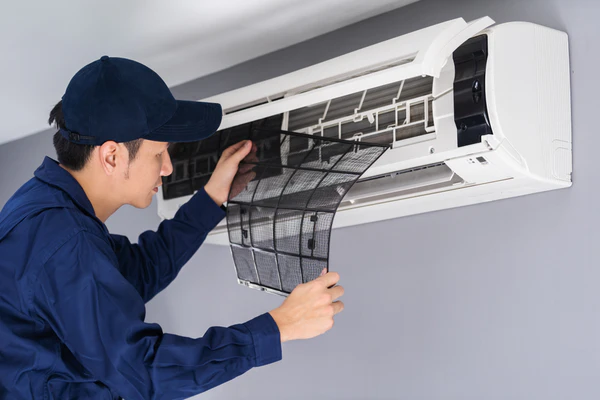How important is it to maintain the filter in your air conditioning system? It may seem like a small part of the unit, but it plays a crucial role in overall performance and indoor air quality. A well-maintained filter can make a significant difference. Let us explore the functionality, issues, and expert recommendations for air conditioner filters.
What Does an Air Conditioner Filter Do?
Dust, dirt, and other particles that move through the system are captured by an air filter. This helps maintain a cleaner environment inside the home while preventing contaminants from entering the cooling unit. Without this component, such particles can cause problems within the system, leading to inefficiency and reduced indoor quality.
These devices are designed to capture particles of various sizes, including dust mites, pollen, and pet dander. The cleaner the filtration system, the more efficiently the air conditioning unit operates. Maintaining this crucial part in good condition is essential for both performance and overall health benefits.
Types of Air Conditioner Filters
Several types of air filters are available, each offering different levels of effectiveness. The most common variety is the standard fiberglass option, which is inexpensive and widely used but only captures larger particles, making it suitable for basic needs.
Pleated options provide better filtration due to their increased surface area, allowing them to trap finer particles like mold spores. High-efficiency particulate air (HEPA) systems represent the gold standard, capable of capturing the smallest contaminants, and are often recommended in homes where individuals suffer from allergies or respiratory concerns.
Common Issues with Air Filtration
Air filtration systems can encounter several issues if not properly maintained. A clogged unit is one of the most common problems. Airflow is impeded by dust and debris, which makes the system work harder and use more energy. This may occasionally cause the gadget to overheat or sustain damage.

Another issue is using the wrong size. These filtration units come in various dimensions, and using an improperly sized one can allow contaminants to bypass the system. Additionally, not replacing them regularly can result in a buildup of pollutants and a decline in the system’s overall performance. Routine checks help avoid these common problems.
Choosing the Right Filtration System
Choosing the correct system is essential for ensuring efficient operation. The Minimum Efficiency Reporting Value (MERV), which measures how well certain components catch particles, is used to rate them. The higher the MERV rating, the more contaminants the system can trap, but not all air conditioning units are designed to handle filters with higher ratings.
For most residential places, a MERV rating between 8 and 12 is sufficient. In homes where allergies or respiratory concerns are a factor, a higher-rated unit may be necessary. Consulting the manual or a professional can help determine the best option for the air conditioning system.
Professional Recommendations for Filter Maintenance
Professionals recommend regular maintenance to keep systems running efficiently. The cooling system can be kept in good operating order by checking the filters once a month and changing them as needed. To handle any possible problems with the unit, it’s also a good idea to arrange for yearly maintenance with a qualified expert.
Maintenance typically includes cleaning other components like coils and inspecting the ductwork for blockages. These tasks improve indoor quality, enhance energy efficiency, and prevent costly repairs over time.
Air conditioner filters play a vital role in both system performance and indoor air quality. By understanding the different types of filters, recognizing signs of wear, and following professional recommendations, homeowners can ensure their system operates efficiently. Keeping the air filter clean is crucial for extending the life of the cooling unit and maintaining a healthier environment. Proper maintenance makes a significant difference in both comfort and cost-efficiency.

